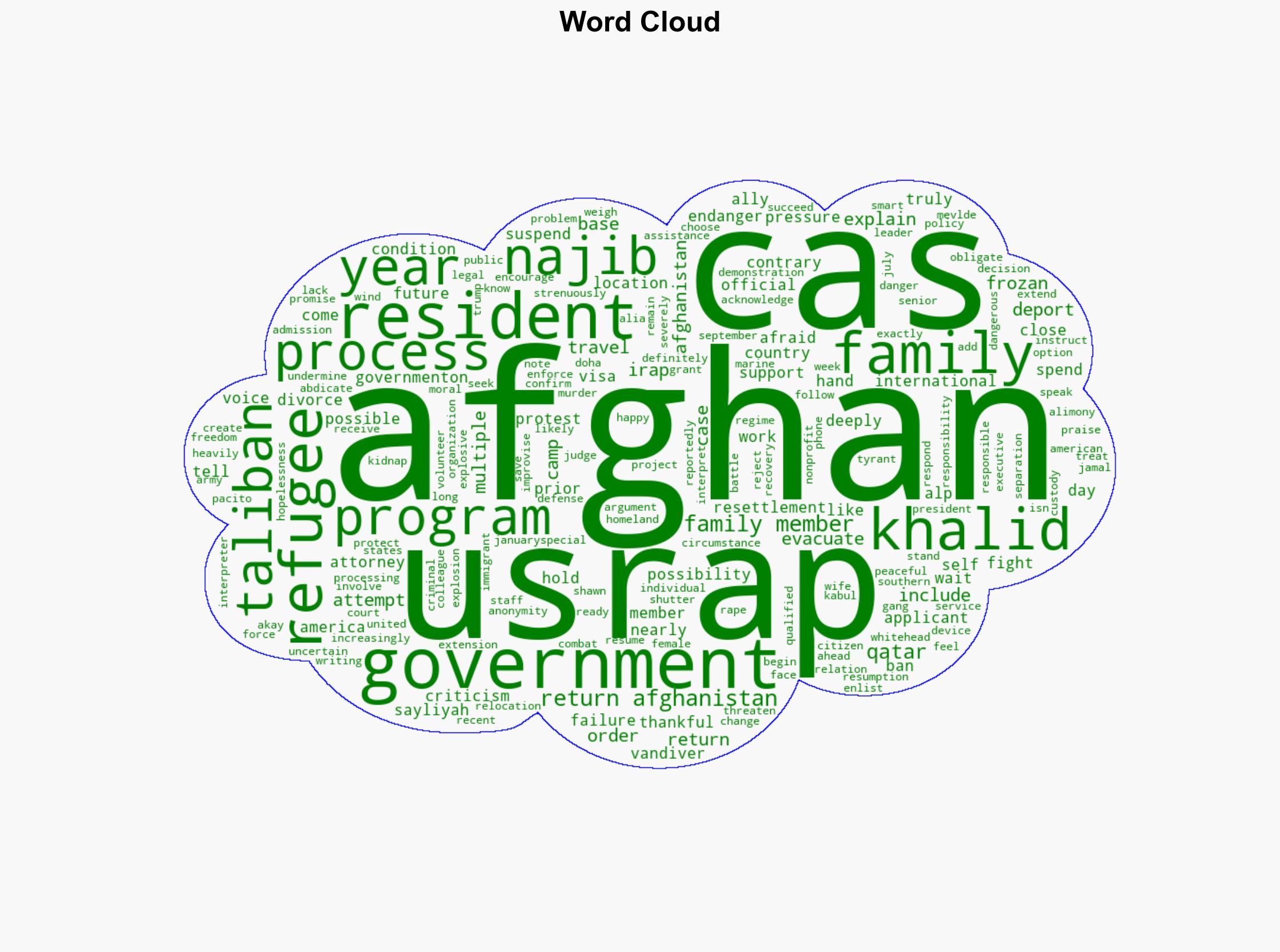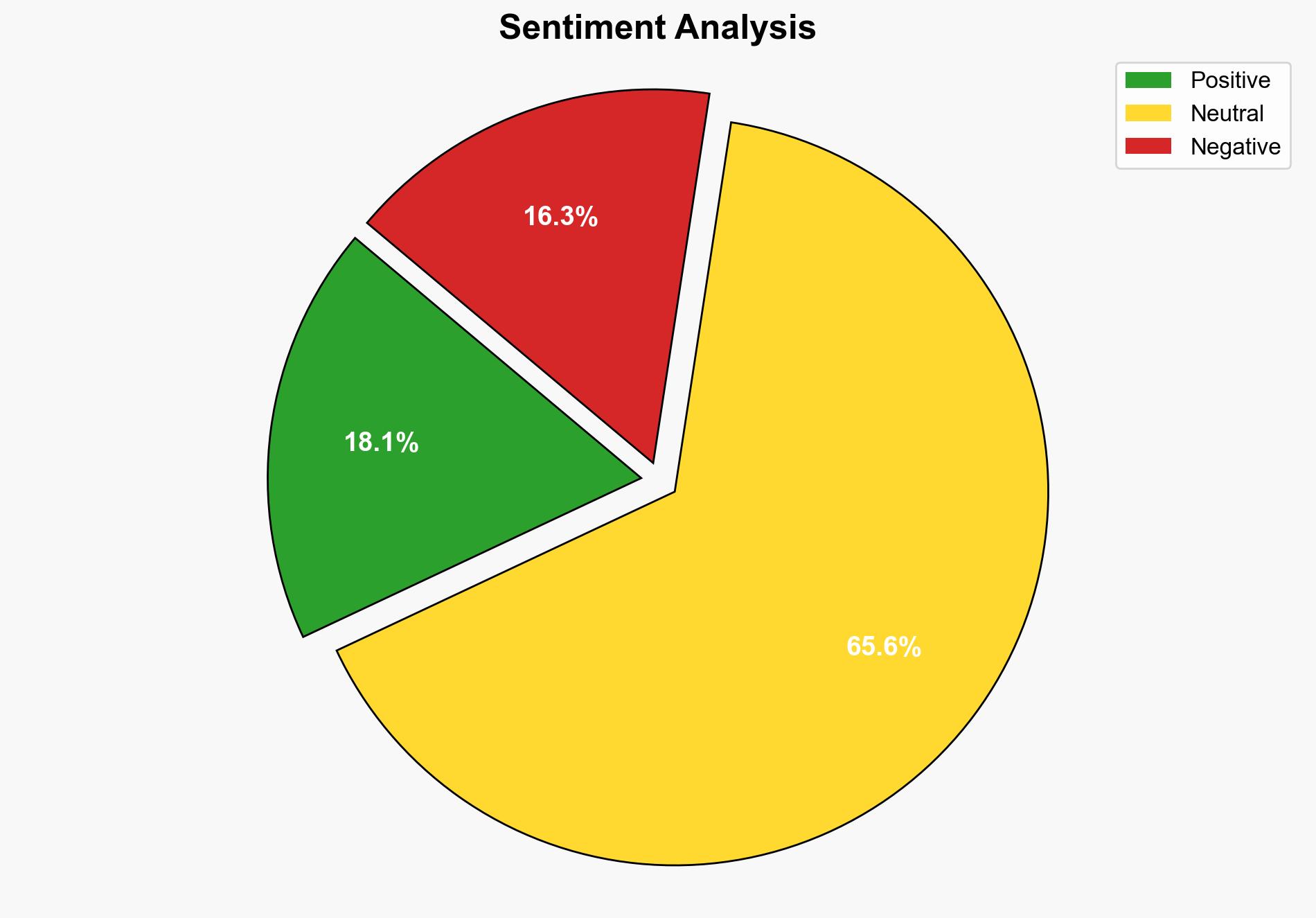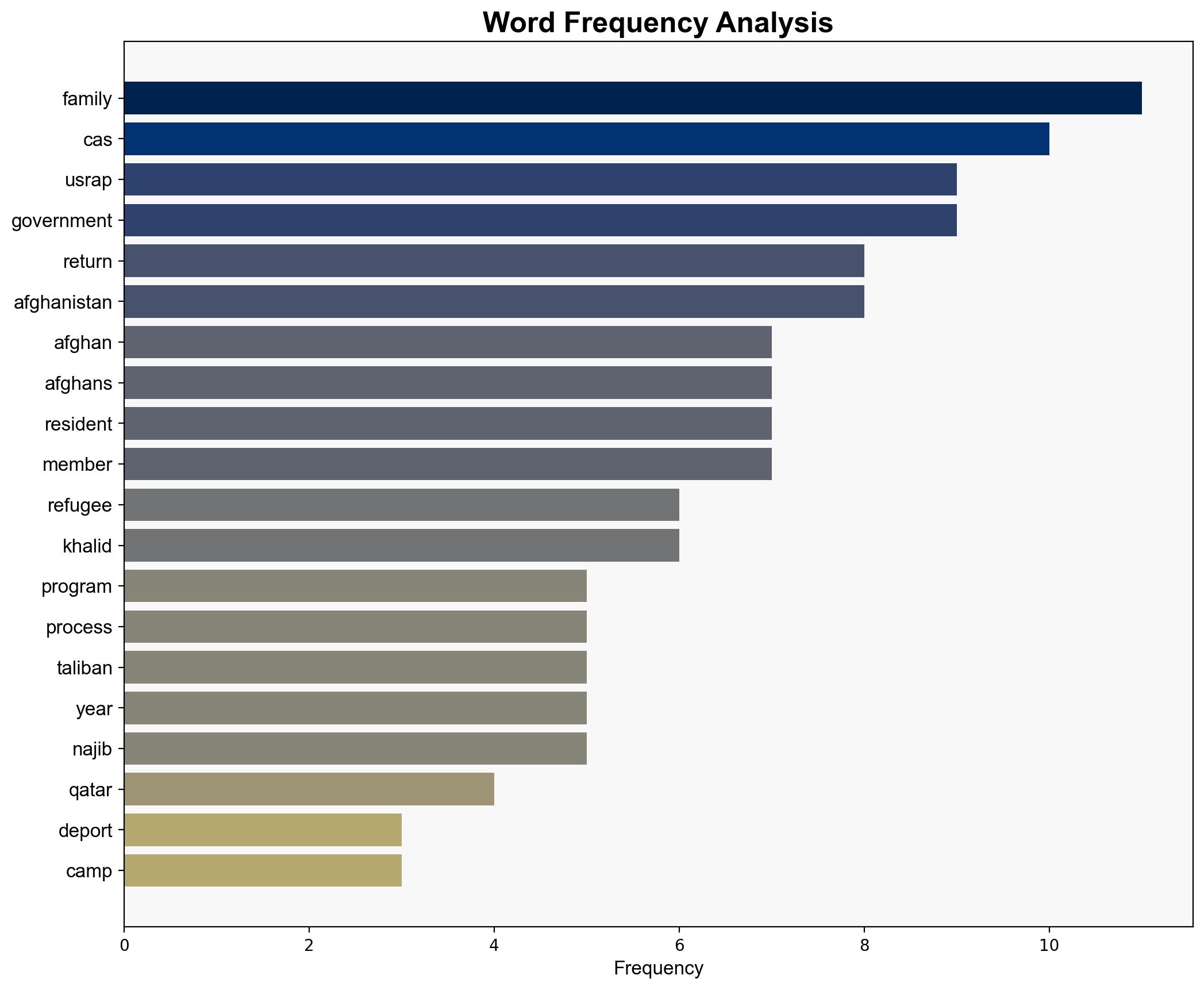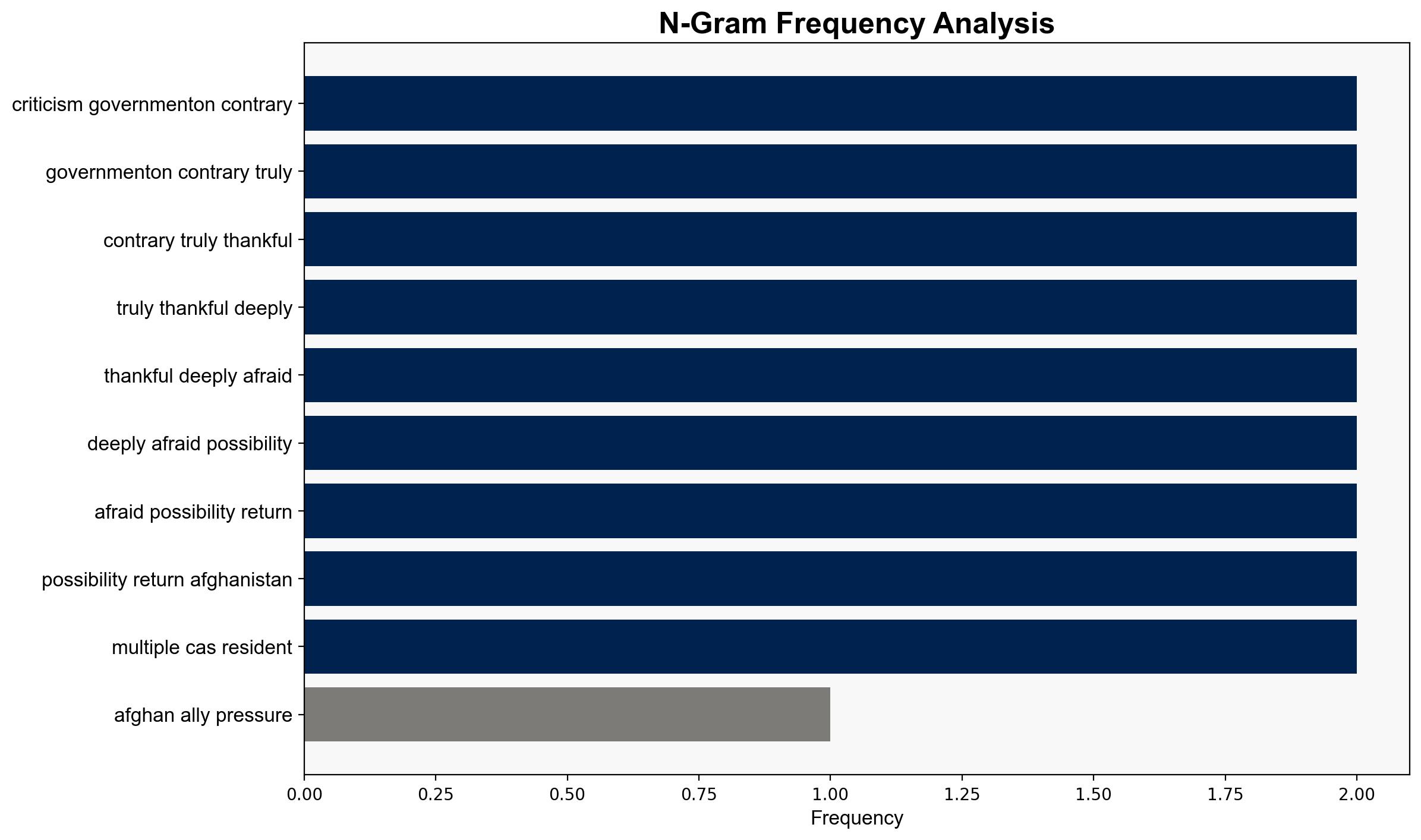Afghan Allies Under Pressure to Self-Deport Voices from Camp As Sayliyah – Reason
Published on: 2025-07-17
Intelligence Report: Afghan Allies Under Pressure to Self-Deport Voices from Camp As Sayliyah – Reason
1. BLUF (Bottom Line Up Front)
Afghan allies residing at Camp As Sayliyah in Doha, Qatar, face increasing pressure to self-deport due to the suspension of the U.S. Refugee Admissions Program (USRAP). This situation has led to significant distress among residents, who fear returning to Afghanistan under Taliban rule. The U.S. government’s current stance and the legal battles surrounding the resumption of USRAP are critical factors influencing the future of these individuals. Immediate action is required to address the humanitarian and strategic implications of this issue.
2. Detailed Analysis
The following structured analytic techniques have been applied to ensure methodological consistency:
ACH 2.0
Analysis suggests that the U.S. government’s intentions may be influenced by broader immigration policies and diplomatic considerations. The suspension of USRAP appears to be a strategic decision with potential implications for international relations and domestic policy.
Indicators Development
Monitoring of Afghan residents’ communications and movements can provide insights into potential radicalization or recruitment efforts by extremist groups. The current environment may foster desperation, making individuals susceptible to exploitation.
Narrative Pattern Analysis
The narrative of abandonment and betrayal is prevalent among the Afghan residents, potentially undermining U.S. credibility and influence in the region. This sentiment may be leveraged by adversarial entities to incite anti-U.S. sentiments.
3. Implications and Strategic Risks
The forced return of Afghan allies to a Taliban-controlled Afghanistan poses significant risks, including potential human rights violations and destabilization. The situation could also damage U.S. relations with allies and partners, affecting military and diplomatic efforts in the region. Additionally, there is a risk of increased radicalization if individuals feel abandoned by the U.S.
4. Recommendations and Outlook
- Reassess the suspension of USRAP and expedite processing for Afghan residents to prevent forced deportations.
- Enhance diplomatic efforts to secure third-country resettlement options for affected individuals.
- Implement robust monitoring and support mechanisms to prevent radicalization and exploitation by extremist groups.
- Scenario Projections:
- Best Case: USRAP resumes, allowing safe relocation of Afghan allies.
- Worst Case: Forced deportations lead to human rights abuses and increased anti-U.S. sentiment.
- Most Likely: Prolonged legal battles delay resolution, exacerbating humanitarian concerns.
5. Key Individuals and Entities
– Mevlde Akay Alp
– Shawn Vandiver
– Frozan
– Khalid
6. Thematic Tags
national security threats, humanitarian crisis, refugee resettlement, U.S. foreign policy





